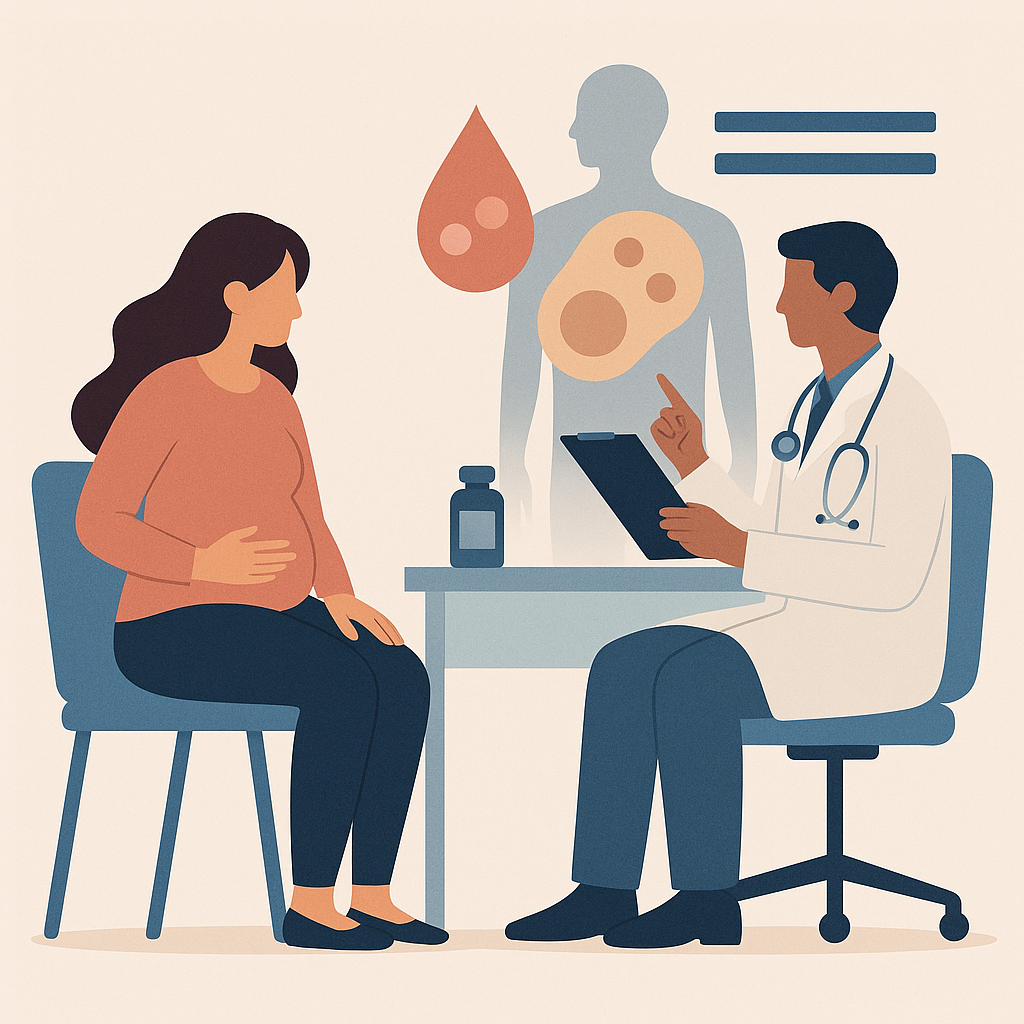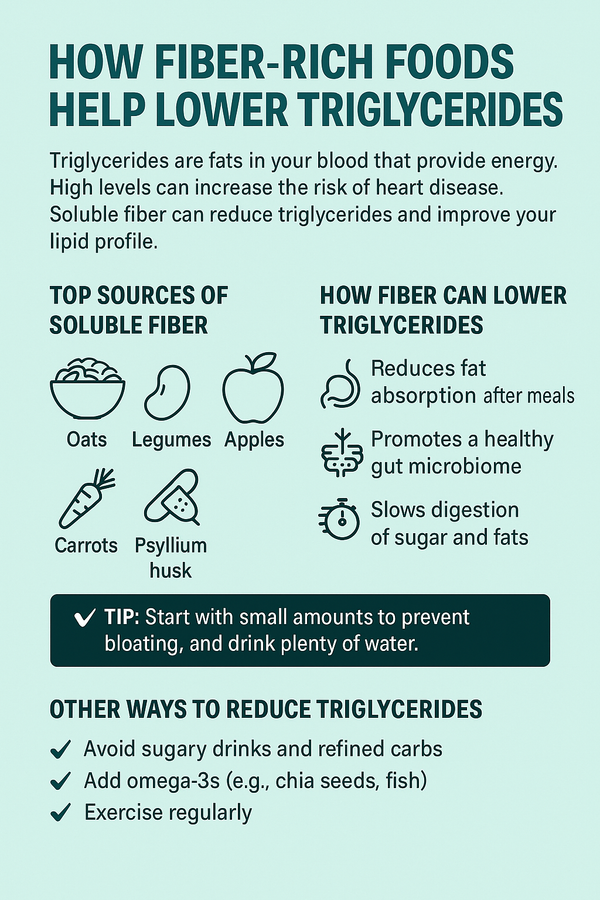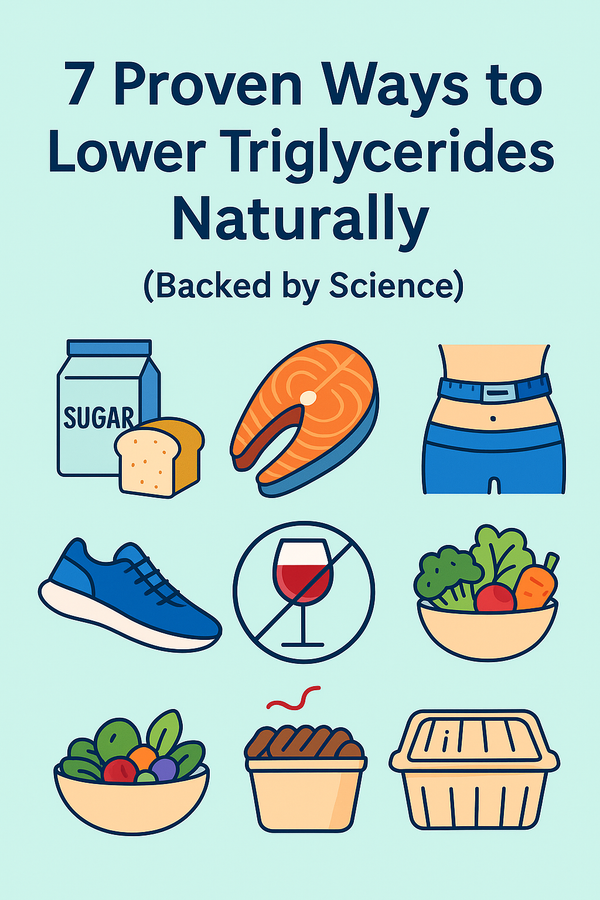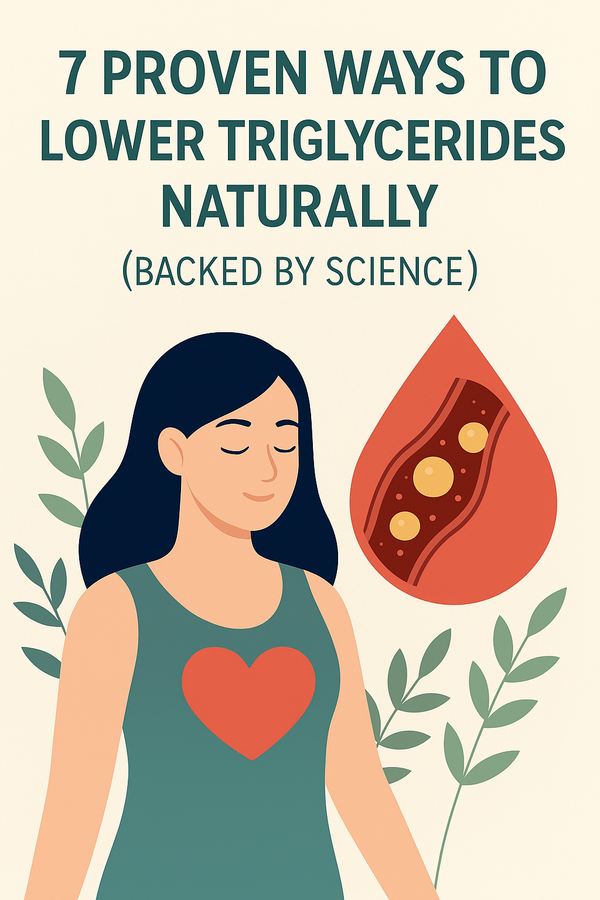How to Naturally Lower High Triglycerides — Without Medication

You’ve probably heard of cholesterol — but have you ever checked your triglycerides?
Triglycerides are a type of fat (lipid) found in your blood. And when they’re too high, they can quietly increase your risk of heart disease, insulin resistance, and even fatty liver. The good news? You can lower them naturally, starting today.
What Are Triglycerides and Why Do They Matter?
Every time you eat, your body converts excess calories — especially from sugar and refined carbs — into triglycerides, which are stored in fat cells. Later, hormones release them for energy between meals.
But when levels are consistently high (above 150 mg/dL), your body enters a danger zone.
High triglycerides are linked to:
- Artery hardening and heart disease
- Insulin resistance and type 2 diabetes
- Liver problems and abdominal fat
- Chronic fatigue and inflammation
Common Causes of High Triglycerides
- Diets high in sugar, white bread, and alcohol
- Lack of physical activity
- Smoking
- Being overweight or having abdominal fat
- Medical conditions like hypothyroidism or PCOS
7 Natural Ways to Lower Triglycerides Without Medication
1. Cut Sugar and Refined Carbs
Sugar turns into triglycerides faster than fat. Eliminate sugary drinks, pastries, and white rice to see results in just weeks.
2. Add More Omega-3 Fats
Fatty fish like salmon, chia seeds, and walnuts help reduce triglyceride levels by improving lipid metabolism.
3. Limit Alcohol
Even small amounts can spike triglycerides — especially sweetened cocktails or beer.
4. Walk or Move Daily
Just 30 minutes of light exercise a day can lower triglycerides and boost HDL (good cholesterol).
5. Eat More Fiber
Soluble fiber in oats, berries, and legumes slows digestion and reduces fat absorption.
6. Lose Belly Fat Gradually
Even a 5–10% weight loss can lead to a 20–30% reduction in triglycerides.
7. Stay Hydrated and Manage Stress
Chronic stress increases cortisol and insulin, both of which fuel fat storage and triglyceride production.
When to See a Doctor
If your triglyceride levels are above 200 mg/dL, or you also have high LDL (bad cholesterol), talk to your doctor about regular testing, deeper hormone checks (like thyroid), and tailored treatment plans.
Final Thoughts
Your triglyceride levels are highly responsive to lifestyle changes. It’s not about perfection — it’s about small, consistent shifts in how you eat, move, and manage stress.
In just a few weeks, you can begin lowering your risk — and feeling more energized in the process.



